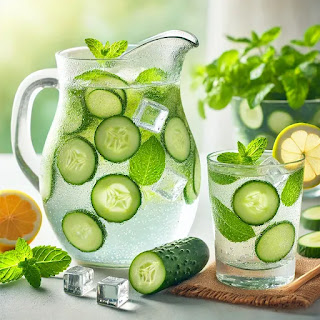Coconut is a very healthy ingredient that can be used safely as food. There are no reported allergic reactions of any sort notified so far following its consumption.
Mango It is also a good source of Dietary Fiber and Vitamin B6 and a very good source of Vitamin A and Vitamin C.
Coconut Mango Shake Ingredients:
- 1 cup Coconut Water (can you use coconut milk either)
- ½ teaspoon vanilla extract
- ½ cup chopped frozen organic mango
- ½ teaspoon flaked coconut (optional)
Instructions
Place the lid on the blender (or cover the cup if using a handheld blender), and then press your blender’s appropriate blending button to combine the mixture. Your smoothie is ready when all ingredients are thoroughly mixed together. If you are using cubed or crushed ice, use the ice crusher setting on your blender to chop and blend the ice into the smoothie.
Fat Contents
Calories: 235; Fat: 11; Fiber: 12; Protein: 7; Carbohydrates: 29\
Nutrients
Mangoes contribute copper and calcium, and iron to the diet as well as antioxidants such as zeaxanthin and beta-carotene.
1 cup of diced mango contains:
- 100 calories
- 1 gram protein
- 0.5 grams fat
- 25 grams of carbohydrate (24 grams of sugar and 3 grams of fiber)
- 100 percent of the daily need for vitamin C
- 35 percent of vitamin A
- 20 percent of folate
- 10 percent of vitamin B-6
- 8 percent of vitamin K and potassium
Health benefits of coconut
Coconut is a very versatile and indispensable food item for most people under the tropical belt. It is a complete food rich in calories, vitamins, and minerals. A medium-sized nut carrying 400 g of edible meat and some 30-150 ml of water may provide almost all the daily-required essential minerals, vitamins, and energy of an average-sized individual.
100 g kernel holds 354 calories. Much of this comes from the fats and protein. Although its meat is disproportionately high in saturated fats in comparison to other common edible nuts, coconut has many health-promoting bioactive compounds.
The important saturated fatty acid in the coconut is lauric acid (1:12 carbon fatty acid). Lauric acid increases good-HDL cholesterol levels in the blood. HDL is a high-density lipoprotein, which has beneficial effects on the coronary arteries by preventing vessel blockage (atherosclerosis). Physicians recommend high HDL to total cholesterol levels in the blood for the same reason.
Coconut water is a very refreshing drink to beat tropical summer thirst. The juice is packed with simple sugar, electrolytes, minerals, and bioactive compounds such as cytokinin, and enzymes such as acid phosphatase, catalase, dehydrogenase, peroxidase, polymerases, etc. Altogether, these enzymes aid in digestion and metabolism.
Coconut oil extracted from the dry kernel (copra) is an excellent emollient agent. It is used in cooking, applied over scalp as hair nourishment, employed in pharmacy and medicines.
Research studies suggest that cytokinins (e.g., kinetin and trans-zeatin) in coconut water showed significant anti-aging, anti-carcinogenic, and anti-thrombotic effects.
The kernel is an excellent source of minerals such as copper, calcium, iron, manganese, magnesium, and zinc.
It is also a very good source of B-complex vitamins such as folates, riboflavin, niacin, thiamin, and pyridoxine. These vitamins are essential in the sense that body requires them from external sources to replenish.
Coconut meat and water contain a good amount of potassium. 100 g of fresh meat contains 356 mg or 7.5% of daily required levels of potassium.
(Base on my Internet Research)





Comments
Post a Comment